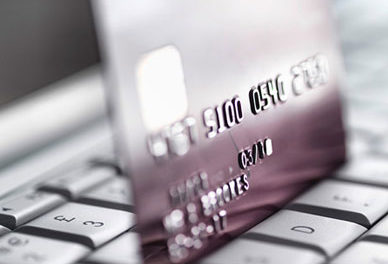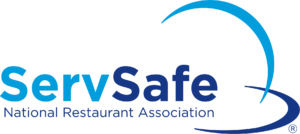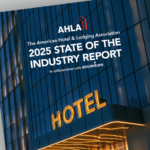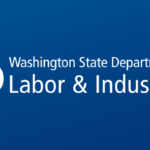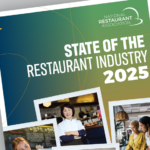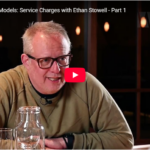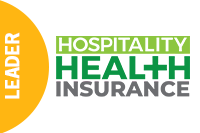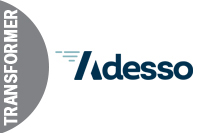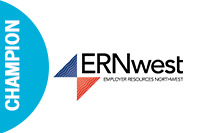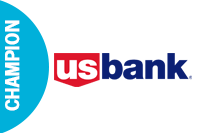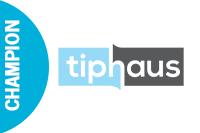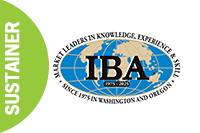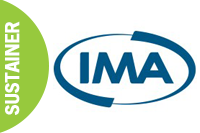Single-use serviceware
Quick summary
- Businesses can no longer automatically include some single-use items in customer orders.
- Customers will have to verbally confirm that they want single-use items or they must select items from self-service bins.
- Certain single-use items may still be included in customer orders.
Additional details
Beginning Jan. 1, 2022, businesses can no longer automatically include some single-use items in customer orders. Customers will have to verbally confirm that they want single-use items, or they must select items from self-service bins instead of having them automatically included with a food order.
Affected items include:
- Utensils (knives, forks, spoons, cocktail picks, chopsticks, splash sticks, and stirrers)
- Straws
- Condiment packages
- Cup lids for cold beverages (Cold beverage lids may be provided by default at drive-thru.)
Items that are still OK to include with a customer’s order without verbal confirmation include:
- Plates, bowls, cups, and other products used to contain food or beverages
- Lids for hot beverages
- Wrappers for takeout food items
- Items provided by medical facilities
You can read more on the Washington State Department of Ecology website here and read the law here.
Plastic bag ban
Quick summary
- As of Oct. 1, 2021, single-use plastic carryout bags in all retail, restaurant and takeout establishments will be prohibited.
- Food establishments must include an $0.08 charge on any thicker (2.25 mil) reusable plastic bag or a larger paper bag (1/8 barrel bag) and keep all revenues generated from the charge.
- Certain single-use bags may still be used.
- Some customers are exempt from paying bag charges.
Webinar: What you need to know about the single-use plastic bag ban
Featuring Shannon Jones, material management coordinator for Western Washington at the Department of Ecology, and Samantha Louderback, state government affairs senior manager at the Washington Hospitality Association.
Click here for a copy of the PowerPoint presentation.
The 2020 Legislature approved a ban on single-use plastic bags, which was originally scheduled to go into effect this year. The Washington Hospitality Association worked with other associations and businesses to delay implementation of this ban during the public health crisis.
Gov. Jay Inslee agreed to this request and issued a proclamation to delay the bag ban. However, that proclamation will expire on Sept. 30.
KNKX: Statewide ban on single-use plastic bags finally taking effect
Starting Oct. 1, single-use plastic carryout bags in all retail, restaurant and takeout establishments will be prohibited. This means businesses that haven’t done so already should begin the process of phasing out single-use plastic bags.
 Bag ban details
Bag ban details
There are some exemptions for food establishments to use single-use bags that do not have handles and smaller paper bags to prevent cross-contamination with ready-to-eat foods:
- Bags that contain or wrap items where dampness or sanitation might be a problem, including but not limited to frozen foods, meat, fish, flowers, potted plants are exempt.
- Bags that contain unwrapped prepared foods or bakery goods are exempt.
- Bags that protect a purchased item from damaging or contaminating other purchased items are exempt.
Mandatory bag charges
Food establishments must include an $0.08 charge on any thicker (2.25 mil) plastic bag or a larger paper bag (1/8 barrel bag).
- The $0.08 charge is per bag and mandatory.
- This charge must be listed as a separate line item on receipts provided to customers.
- Businesses must keep all revenues generated from the charge.
- The charge is considered a taxable retail sale that must be reported to the Department of Revenue. However, these charges can be deducted from B&O taxes.
- Note: Only the eight-cent per bag charge may be deducted from income for the purposes of calculating B&O tax. For example, if a member opted to charge a total of 16 cents per bag, there should be two separately stated charges: an eight-cent pass-through charge and a separate eight-cent charge that’s being charged at the retailer’s discretion.
- Additional tax information from the Department of Revenue can be found here.
Third-party delivery services
How does the .08 per bag charge work with orders fulfilled through third-party delivery services?
Unfortunately, this is a gray area in the implementation of the new law and we don’t have a clear answer just yet. The government affairs team has raised this issue with the Department of Ecology. Restaurants are ultimately responsible for the bag charge according to DOE. We are working on potential solutions to this issue with the third-party delivery companies and will inform members of any new developments that emerge from these discussions in the coming weeks. In the meantime, we recommend association members reach out to their third-party delivery representative on this topic.
Local bag bans
This statewide ban supersedes all local ordinances, except in those jurisdictions where the implemented fee is $0.10. In those cases, businesses will need to charge $0.10 for the thicker plastic and bigger paper bags.
Cities where the fee is $0.10:
- Bingen
- Burien
- Lake Forest Park
- Snohomish
- White Salmon
Exemptions
Businesses must exempt customers using the following programs from bag charges:
- Supplemental Nutrition Assistance Program (SNAP)
- Women, Infants, & Children (WIC)
- Temporary Assistance for Needy Families (TANF)
- State Food Assistance Program (FAP)
What’s next?
Businesses with existing single-use plastic bag inventory should develop a plan to use that inventory by the end of September. You will be responsible for complying with the new law starting Oct. 1.
The Department of Ecology (DOE) is the enforcing agency, and it will initially focus on education rather than enforcement. Repeat violations may result in fines of up to $250.
If you have questions, please contact your Government Affairs team at .
Frequently Asked Questions (FAQ)
The following questions and answers were shared with us by DOE. The answers below were provided to the association by DOE in an effort to increase clarity around the new bag ban.
Can businesses use up existing inventories of plastic bags without penalty?
The deadline for using up inventory technically passed in June and was not extended by the Governor in concurrence with the delayed October 1 implementation date. However, the intent is not for these bags to go to waste. Though we will begin accepting and following up on complaints of non-compliance beginning October 1, a business in question will have opportunity to explain that they are using up their inventory. The business may be required to provide invoices and receipts to show that the bags were purchased before the October 1 effective date, and Ecology would then exercise enforcement discretion on a case by case basis. However, we would not expect businesses to be using up existing inventories of bags for more than a few months.
A business collects used bags from customers and supply them for reuse. Is this still allowed under the new law?
Technically no- you cannot provide the single-use plastic bags or bags not meeting the new requirements even if they are previously used and deposited.
Can businesses charge more than 8 cents per bag?
Since any charge in excess of 8 cents is not part of the statutorily defined pass-through charge, it cannot be deducted from that taxpayer’s income for the purposes of calculating B&O tax. RCW 70A.530.020(2)(c) requires that retail establishments show all pass-through charges on a receipt, as well.
As an example, if a retailer opted to charge a total of 16 cents per bag, there should be two separately stated charges: an eight-cent pass-through charge per Ch. 70A.530 RCW, and a separate eight-cent charge that’s being charged at the retailers discretion.
Can businesses supply a smaller paper bag at no cost?
Bags smaller than the large barrel paper bags (882 cubic inches or larger) do not require an 8 cent charge. However, they must still meet the 40% post-consumer recycled content minimum, 40% wheat straw, or a combination of the two that totals at least 40%. They must be labeled on the exterior of the bag with this percentage.
What kind of outreach resources are available for informing staff and the public of the new requirements?
The Ecology Bag Ban Website contains a link to download our Bag Ban Outreach Toolkit. This toolkit contains detailed flyers to educate businesses and their staff on all the details of the new law, point of sale signs for communicating the requirements to customers, and Bring Your Own Bag (BYOB) signage to encourage customers to bring their own reusable bags. The toolkit is available in 17 different languages and is formatted for accessibility. It can be downloaded in PDF or InDesign file formats to allow for branding and customization. Businesses are encouraged to utilize and print these materials as much as they are able
Will any of the new requirements change or increase over time?
Yes, beginning July 1, 2022, the post-consumer recycled content percentage for reusable plastic carryout bags increases from 20% to 40%.
Beginning January 1, 2026, the thickness requirements for the reusable plastic film bags increases from 2.25 mil to 4 mil and the required charge for these bags increases from 8 cents to 12 cents (paper bags continue to be available for 8 cents).
Are food benefits customers (SNAP, WIC, TANF, etc.) exempt from the charge?
Yes. Food benefits customers are exempt from the charge regardless of the method of payment used. They need only show proof of their food benefits status (showing the card itself or another formal document) and can receive this exemption at all types of businesses (restaurants, retail, etc.).
Additional information
Department of Ecology: Information & FAQs
ESSB 5323: Bill text
ESSB 5323: Final bill report
Department of Ecology downloadable PDFs
Restaurant flyer
Retail flyer
Point of sale sign
BYOB posters
Bag ban toolkit (multiple languages)

![[Toolkit] New laws for plastics in Washington state](https://wahospitality.org/wp-content/uploads/2021/12/Single-Use-Slider-Graphic-DOE-1.png)





